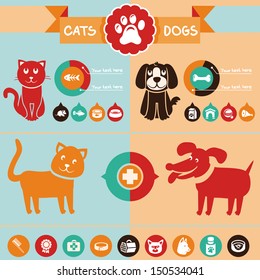Daily Schedules And Activities At The Canine Club
Daily Schedules And Activities At The Canine Club
Blog Article
Can Dog Daycare Cause Illness?
Pets in day care get lots of workout, socializing with other dogs and one-of-a-kind experiences. This can be specifically practical for young puppies and dogs with behavior problems.
There are a number of lawful factors to consider you need to take into account when beginning a doggy childcare service. These consist of the framework of your business and compliance with government policies.
1. Dog Distemper
Canine distemper is spread with direct contact with the physical liquids and waste of a contaminated pet, yet it can also be transmitted through shared water and food bowls or with airborne beads. This very transmittable ailment is most unsafe for pups, yet it can affect pet dogs of any kind of age and is deadly for the majority of if left untreated.
First signs and symptoms of canine distemper usually mimic a common cold, consisting of dripping eyes and nose with watery or pus-like discharge. As the condition proceeds, a pet will certainly create high temperature, coughing, lowered cravings, throwing up and looseness of the bowels. The infection can additionally strike the nerves, causing seizures, jerking and partial or total paralysis.
Trustworthy childcares lower direct exposure to infection by needing inoculations, routine health examinations and comply with stringent hygiene protocols. If your pup seems overly tired or hopping, a day off might aid him recoup, however you must prevent taking him back to day care up until these symptoms clean up.
2. Kennel Cough
Kennel coughing, additionally referred to as contagious canine tracheobronchitis or Bordetella, is a very contagious viral or bacterial illness that influences the respiratory tract. It's frequently moved via the exchange of saliva or air droplets that a sick pet breathes out. Social pet dogs are at higher threat for infection as a result of their regular interaction with one another, such as when they play, share food or water, sniff one another or merely satisfy in a congested environment like a dog park or childcare.
One of the most typical symptom of kennel coughing is a relentless and powerful cough that seems like something stuck in the throat or pet boarding near me for dogs retching. Frequently, dogs will certainly spend frothy white phlegm. If left untreated, a pet dog can establish pneumonia and be at significant danger for life.
A trusted daycare center must have strict cleansing and hygiene procedures, sanitize all playthings, food and water bowls consistently, and be open regarding their vaccination plans. Keeping your dog approximately day on their vaccinations, specifically for bordetella and canine flu, will considerably decrease their chances of getting the health problem.
3. Parvovirus
Canine parvovirus, or parvo, is a highly transmittable viral disease that can be deadly for young puppies and young adult pets with bad body immune systems. It's most frequently spread by straight contact with contaminated dog feces-- which can occur when dogs smell, lick, or taste contaminated feces-- and indirectly from polluted people, items, or environments (like kennels, brushing spaces and lawns). Pups and canines without full vaccination backgrounds are especially at risk to parvo.
The virus is extremely durable, enduring in the environment for approximately nine years, and can conveniently be moved in between dogs by call with feces or on footwear, clothes, and bed linens polluted with parvovirus. If not dealt with immediately with IV liquids, electrolyte equilibrium, vomiting control drugs and antibiotics to stop secondary microbial infections, a dog will quickly dry out and develop extreme diarrhea, which results in shock and blood poisoning. Parvo is difficult to treat as soon as a canine has actually become ill, yet with suitable vet care, lots of pups do survive this health problem.
4. Canine Influenza
Pooch influenza infection is very infectious and spreads via direct get in touch with, sharing food and water bowls, licking or nuzzling other pet dogs, through airborne beads, and via contaminated surface areas. Inoculation is effective in lowering the risk of infection and episodes.
Most impacted dogs establish a light respiratory infection with a cough that lasts 1-3 weeks. They might also have nasal and ocular discharge, sneezing, and sleepiness. Some of the most significant cases lead to pneumonia and a high fever.
If your pet exhibits any one of these signs and symptoms, do not bring them back to daycare up until they are healthy and balanced. If your dog is revealing indicators of extreme fatigue or hopping, talk with your vet as soon as possible and make sure they are on health supplements to aid construct their immunity. A veterinarian will certainly review your dog for symptoms of the influenza by taking an example from the nose or throat, and blood tests can be done to validate.